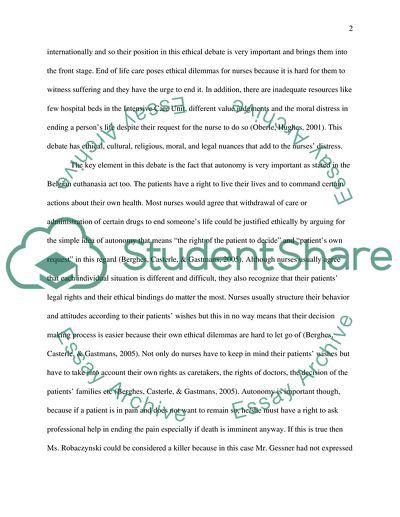Cite this document
(“Nurses Attitudes towards Euthanasia Research Paper - 1”, n.d.)
Retrieved from https://studentshare.org/nursing/1620240-nursing-and-ethical-issues-final-case-study
Retrieved from https://studentshare.org/nursing/1620240-nursing-and-ethical-issues-final-case-study
(Nurses Attitudes towards Euthanasia Research Paper - 1)
https://studentshare.org/nursing/1620240-nursing-and-ethical-issues-final-case-study.
https://studentshare.org/nursing/1620240-nursing-and-ethical-issues-final-case-study.
“Nurses Attitudes towards Euthanasia Research Paper - 1”, n.d. https://studentshare.org/nursing/1620240-nursing-and-ethical-issues-final-case-study.


